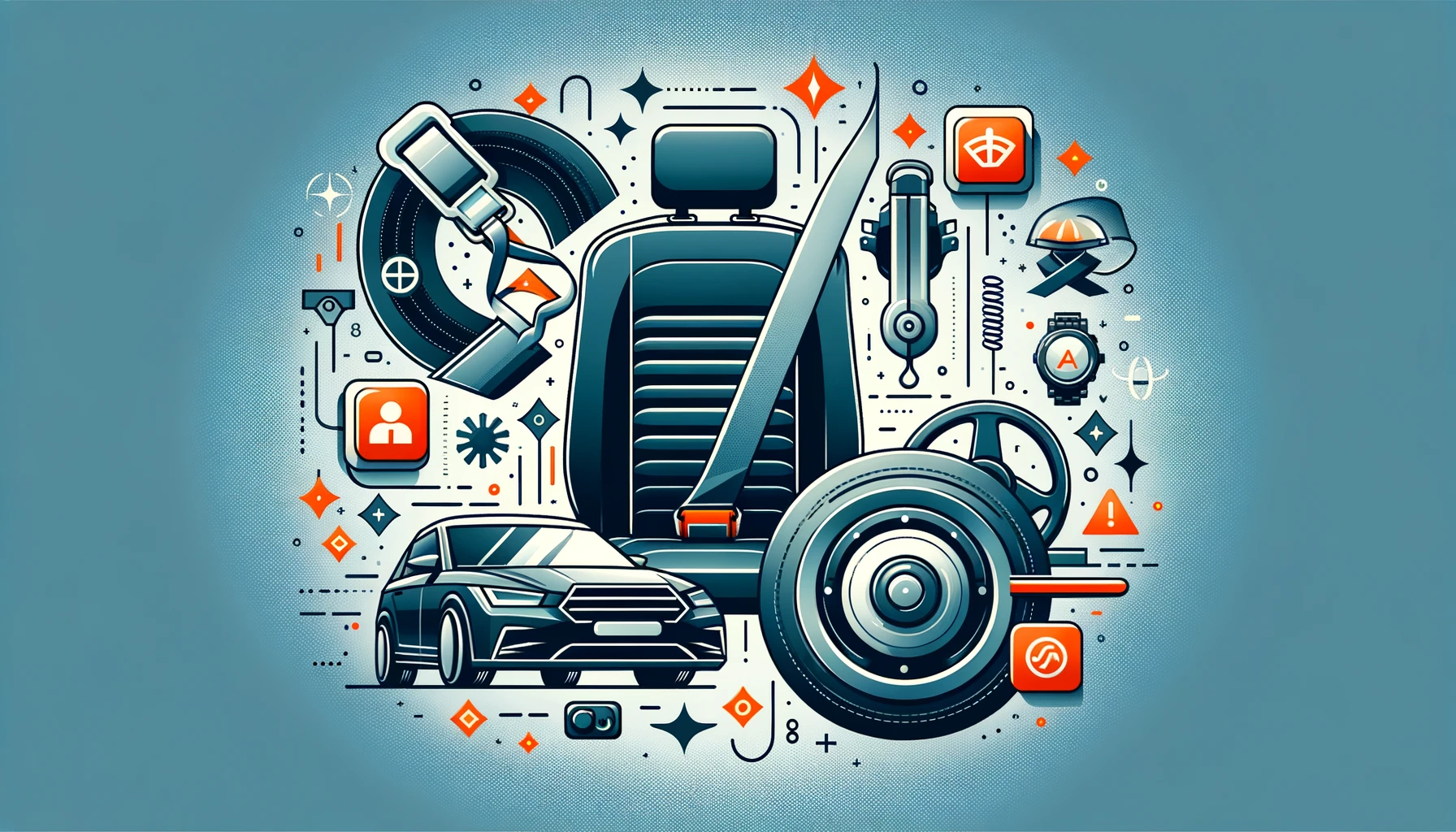Welcome to the first article in our new series, “Driving Safely: Understanding Your Vehicle’s Safety Features.” In this series, we’ll explore the various technologies and systems designed to keep you safe on the road. Today, we begin with the essentials—the fundamental safety features that every car should have, why they matter, and how they work to protect you and your passengers.
When it comes to driving, safety is paramount. Every vehicle on the road today is the result of decades of innovation and refinement, specifically aimed at keeping drivers and passengers safe. Let’s dive into the essential safety features that are fundamental to every car, how they work, and why they’re so crucial for your protection.
Seat Belts: The First Line of Defense
The seat belt, introduced as a standard feature by Volvo in 1959, remains the single most effective safety device in vehicles today. Here’s why every tap of the buckle matters:
- Prevent Ejection: In a crash, being ejected from the vehicle almost certainly leads to serious injury or death. Seat belts keep you inside, dramatically increasing your chances of survival.
- Spread Out Impact: Seat belts spread the forces of a crash over the stronger parts of your body, like your pelvis and rib cage.
- Protection Synergy: Seat belts should work in tandem with airbags to maximize your protection. An unbelted passenger can be seriously harmed by an airbag, making the seat belt crucial even in cars with advanced airbags.
Airbags: Cushioning the Blow
Since their widespread adoption in the 1990s, airbags have saved countless lives by providing a cushion that absorbs impact energy during a collision, significantly reducing potential injuries. Key points include:
- Frontal Airbags: Deploy in moderate to severe frontal crashes to protect your head and chest from hitting the dashboard or steering wheel.
- Side and Curtain Airbags: These deploy from the sides of your vehicle in a side impact or rollover, protecting your head and helping prevent debris from entering the car.
Anti-lock Braking System (ABS): Stopping Safely
ABS helps prevent the wheels from locking up during braking, allowing the driver to maintain steering control and helping to minimize a vehicle’s stopping distance. Here’s how ABS enhances safety:
- Steer During Braking: It allows you to steer around obstacles while simultaneously braking hard, a critical capability in emergency situations.
- Reduce Skids: By preventing wheel lock-up, ABS keeps the tires moving, which helps maintain traction with the road surface.
Electronic Stability Control (ESC): Mastering Difficult Drives
Electronic Stability Control is a lifesaver on slippery roads. It detects and reduces loss of traction, helping to prevent skidding or sliding during abrupt turns or sudden maneuvers. The benefits of ESC include:
- Improves Vehicle Handling: ESC is designed to automatically apply brakes to individual wheels and, when necessary, reduces engine power if it detects your vehicle is veering off its intended path.
- Prevention of Rollovers: Especially crucial for taller, top-heavy vehicles like SUVs and vans, ESC can help prevent rollovers in critical situations.
Vehicle Safety Beyond Features
While these features form the core of modern vehicle safety, they are only as effective as the driver’s awareness and adherence to safe driving practices. Always ensure:
- Regular Maintenance: Check your car’s safety systems regularly to ensure they are functioning correctly.
- Mindful Driving: No safety feature can completely protect you from the consequences of risky driving behaviors like speeding or distracted driving.
Conclusion
From the reassuring click of a seat belt to the silent guard of electronic systems, these safety features encapsulate the most critical elements of modern automotive safety design. As we continue to navigate roads that are busier than ever, these innovations remain essential allies in our journey towards safer driving experiences.
Stay tuned for the next article in our series, where we’ll explore advanced driver-assistance systems (ADAS) to find out how technology is paving the way to a safer future on the road.
Remember, while your vehicle can be equipped with various safety features, responsible driving is the key to truly safeguarding yourself and your passengers on the road.
If you or someone you know has been involved in an accident, Stillman & Friedland Attorneys are here to help. Our experienced team can guide you through the legal process, ensuring you understand your rights and options. Call our Nashville team at 615-244-2111 for a free, confidential consultation. You can also reach out via our live chat or online contact form.
Stay safe out there, Nashville.
Because we care…
Stillman and Friedland







